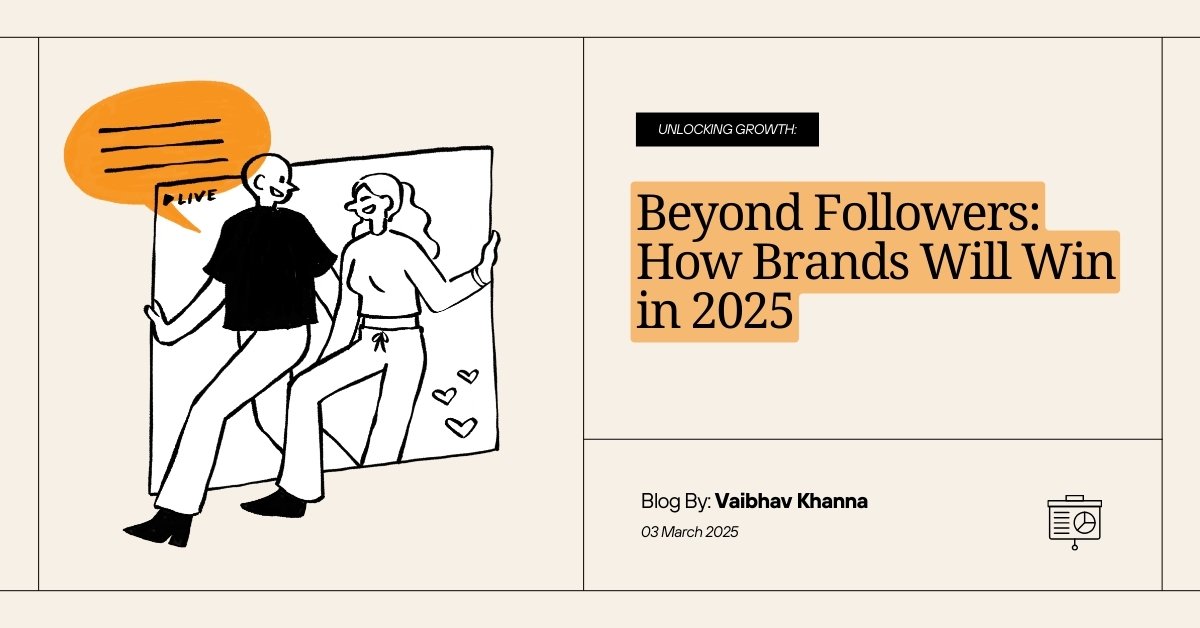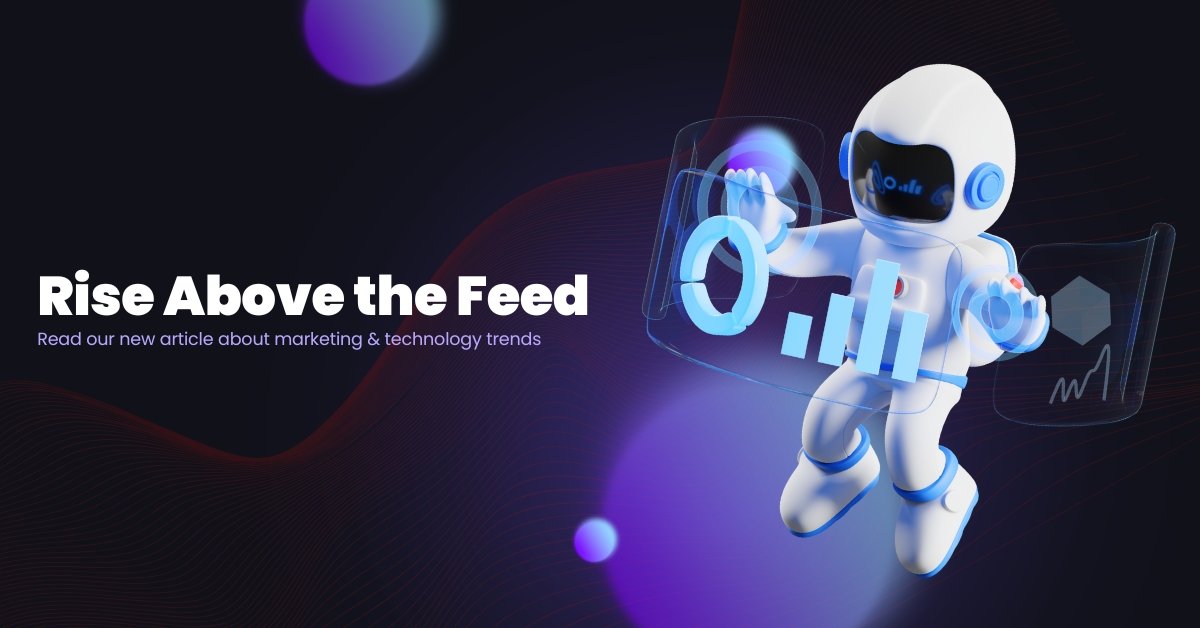Influencer marketing is evolving rapidly, and 2025 is set to bring new trends and strategies that redefine how brands collaborate with influencers. As consumers demand authenticity and engagement, the traditional influencer marketing playbook is getting a major update. Here’s what you need to know about Influencer Marketing 2.0 and how to leverage it effectively for your brand.
Why Influencer Marketing is Essential for Brands in 2025
With social media platforms continuously evolving, influencer marketing remains one of the most effective digital marketing strategies. Businesses that integrate influencer marketing services with their overall digital marketing strategy can achieve higher engagement, brand awareness, and conversions. If you’re looking to scale your brand, collaborating with the right influencers can drive meaningful results.
Top Influencer Marketing Trends in 2025
1. Rise of Micro & Nano-Influencers
The days of relying solely on mega-influencers with millions of followers are fading. Brands are now focusing on micro-influencers (10K-100K followers) and nano-influencers (1K-10K followers) who offer higher engagement rates, niche audiences, and greater trust among their followers. These influencers create authentic connections that drive meaningful brand interactions and increase conversion rates.
How to Leverage This Trend:
- Partner with niche influencers for highly targeted marketing campaigns.
- Use influencer outreach services to connect with the right content creators.
- Focus on engagement rates rather than just follower count.
2. AI-Powered Influencer Selection & Campaign Management
Artificial Intelligence (AI) is revolutionizing influencer marketing by identifying the best influencers for campaigns based on data-driven insights. AI tools analyze engagement metrics, audience demographics, and authenticity scores to help brands find the right match and predict campaign success.
How AI Enhances Influencer Marketing:
- AI tools automate influencer research and selection.
- Predictive analytics help brands forecast campaign success.
- AI-powered platforms streamline communication and performance tracking.
3. Long-Term Brand Partnerships Over One-Off Deals
One-time influencer collaborations are losing their effectiveness. In 2025, brands are focusing on long-term partnerships that build credibility and deeper audience relationships. These ongoing collaborations create trust and loyalty, leading to better engagement and conversions.
Best Practices for Long-Term Influencer Partnerships:
- Offer exclusive collaborations and ambassador programs.
- Ensure consistent brand messaging across multiple campaigns.
- Utilize content marketing services to repurpose influencer content.
4. Video & Live Content Domination
Short-form video content on TikTok, Instagram Reels, and YouTube Shorts continues to dominate. Live streaming is also on the rise, allowing influencers to engage in real-time, host Q&A sessions, and provide product demonstrations that feel authentic and interactive.
How Brands Can Benefit:
- Invest in video marketing services for optimized content.
- Create shoppable live streams to drive instant sales.
- Encourage influencers to share behind-the-scenes content for better audience engagement.
5. Performance-Based Influencer Marketing
Brands are shifting toward performance-based influencer marketing, where payments are tied to measurable results such as engagement, conversions, and sales rather than just follower count. This ensures a higher ROI for influencer marketing campaigns.
Key Metrics to Track:
- Click-through rates (CTR) and conversion rates.
- Cost-per-acquisition (CPA) from influencer campaigns.
- Engagement metrics such as likes, shares, and comments.
6. Decentralization & Web3 Influencer Marketing
With the rise of Web3 and blockchain technology, influencers now have more control over their content and monetization. Decentralized platforms are emerging, allowing influencers to earn directly from their audience through NFTs, tokens, and smart contracts without relying on traditional social media algorithms.
Opportunities for Brands:
- Partner with blockchain-based marketing platforms.
- Explore influencer tokenization and NFT collaborations.
- Secure partnerships with Web3 influencers and thought leaders.
7. AI & Virtual Influencers
The rise of AI-generated virtual influencers is changing the landscape. Brands like Prada and Samsung are already collaborating with digital personas, and this trend is set to grow. Virtual influencers offer consistency, full creative control, and unique storytelling opportunities.
How Virtual Influencers Benefit Brands:
- Reduced risks of brand reputation issues.
- 24/7 availability for content creation and audience engagement.
- Highly customizable and tailored brand messaging.
8. Authenticity & Transparency Are Key
Consumers are becoming more skeptical of paid promotions. Brands must prioritize influencer partnerships that align with their values and promote genuine, relatable content. Disclosing paid promotions and focusing on storytelling rather than hard-selling is crucial.
Ways to Enhance Transparency:
- Use authentic influencer partnerships rather than scripted ads.
- Encourage influencers to share real experiences with products.
- Comply with FTC guidelines for disclosure of sponsored content.
9. Niche & Industry-Specific Influencers
From fintech to sustainability, niche influencers are gaining popularity. Instead of general lifestyle influencers, brands are collaborating with experts in specific industries to target highly engaged and relevant audiences.
Industries Where Niche Influencers Thrive:
- Health & Wellness Influencers for fitness brands.
- Tech Influencers for software and SaaS businesses.
- Eco-Friendly Influencers for sustainable brands.
10. Social Commerce & Shoppable Content
Influencers are becoming direct sales channels through Instagram Shops, TikTok Shop, and YouTube Shopping features. In 2025, brands will invest heavily in influencer-led commerce, allowing followers to purchase products seamlessly through social platforms.
How to Leverage Social Commerce:
- Utilize eCommerce marketing services to optimize social media storefronts.
- Partner with influencers for exclusive discount codes and flash sales.
- Implement interactive shopping experiences within live video streams.
Final Thoughts
Influencer Marketing 2.0 is all about authenticity, data-driven decisions, and deep audience connections. Brands that adapt to these evolving trends will be able to maximize their influencer marketing efforts, drive engagement, and boost sales in the competitive digital landscape.
Ready to Elevate Your Influencer Marketing Strategy?
If you’re looking for expert influencer marketing services, our team can help you design and execute high-impact campaigns. Contact us today to learn more about how we can connect your brand with the right influencers for maximum impact!





